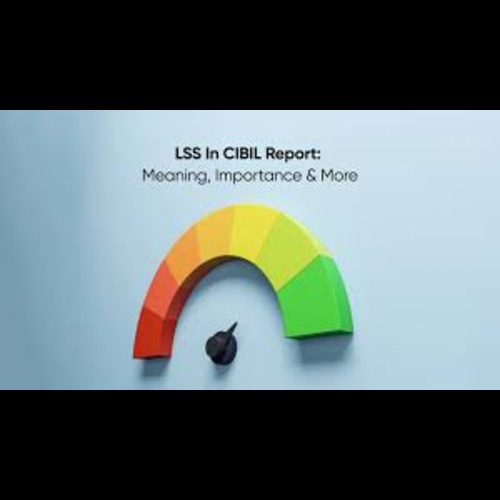
A CIBIL Report gives a detailed summary of an individual’s credit history and financial behavior. Within this report, the LSS (Loan Serviceability Score) is an important parameter that helps lenders gauge the borrower’s ability to manage and repay loans. LSS evaluates factors such as income, existing liabilities, repayment patterns, and credit utilization to determine a score. This score, in conjunction with your CIBIL score, gives lenders a comprehensive view of your current financial health.
For borrowers, it’s crucial to understand your Loan Serviceability Score (LSS), as it plays a big role in loan approvals, interest rates, and credit limits. A strong LSS indicates that you’re seen as less of a risk, making it easier to get better loan terms. On the flip side, a low LSS could reduce your borrowing capacity or result in higher interest rates. It’s a good idea to regularly check your CIBIL report, including your LSS, to ensure everything is accurate and to stay on top of your financial health.
Muthoot Finance, India’s No. 1 Most Trusted Financial Services Brand for the 8th year in a row (since 2016) by TRA’s Brand Trust Report 2024, provides a free credit score check to help you stay updated on your financial well-being. By taking advantage of this service, you can proactively work toward improving your creditworthiness.
What is LSS in a CIBIL Report?
The Loan Serviceability Score (LSS) is a dynamic metric included in the CIBIL report. Unlike the static CIBIL score, which focuses solely on credit behavior, LSS also accounts for an individual’s income and repayment capacity.
Key Factors that Influence LSS:
- Debt-to-Income Ratio: A higher ratio indicates more financial strain, which can hurt your LSS.
- Credit Utilization: Relying too much on credit signals a dependence on borrowed money, which can lower your score.
- Repayment History: Paying your bills on time boosts your LSS, showing you manage your finances responsibly.
- Credit Mix: Having a healthy balance of secured and unsecured loans can positively impact your LSS.
| Factor | Impact on LSS |
|---|---|
| Debt-to-Income Ratio | High ratio lowers LSS |
| Credit Utilization | Over 30% utilization reduces the score |
| Repayment History | Timely payments improve LSS |
| Credit Mix | Balanced mix boosts LSS |
How to Read a CIBIL Report?
Knowing how to read your CIBIL reports is essential for understanding your LSS and overall credit health. Here’s a quick guide:
- Personal Information (PI): Double-check your full name, PAN details, and contact information to make sure everything is correct and accurate.
- Account Details: Go over your credit accounts, such as loans and credit cards. Make sure there are no errors or accounts that aren’t your own.
- Credit Enquiries: Take note of how often lenders have looked at your credit. Too many inquiries could hurt your score.
- Credit Score and LSS: Review these scores to get a precise picture of your creditworthiness and ability to repay loans.
Tip: Use Muthoot Finance’s free credit score check service to regularly monitor your financial health.
The Importance of LSS in Loan Approvals
While a good CIBIL score is essential, lenders heavily rely on LSS to make lending decisions. A strong LSS reassures lenders that the borrower can handle monthly EMIs without financial strain.
Benefits of a High LSS:
- Quick Loan Approvals: A high LSS makes it more likely that your loan will be approved.
- Better Interest Rates: A strong score can lead to lower interest rates.
- Enhanced Credit Limits: Borrowers with high LSS are often eligible for higher credit limits.
- Improved Negotiation Power: You can negotiate better terms with lenders.
How to Improve Your LSS
Improving your LSS requires a combination of good financial habits and proactive monitoring:
- Reduce Debt-to-Income Ratio: Focus on paying off current loans and be mindful not to take on too much debt.
- Maintain a Balanced Credit Mix: Include both secured and unsecured loans.
- Pay EMIs on Time: Late payments severely affect both your CIBIL score and LSS.
- Limit New Credit Enquiries: Multiple loan applications can harm your score.
LSS vs. CIBIL Score
Although LSS and CIBIL scores are often used together, they serve different purposes:
| Metric | Purpose |
|---|---|
| CIBIL Score | Measures overall creditworthiness |
| LSS | Evaluates loan repayment capacity |
| Data Considered | Past credit history |
| Income, expenses, and financial behaviour |
Understanding this difference is essential for managing your financial profile effectively.
Muthoot Finance offers tailored financial solutions, including gold loan, personal loan, and now also provides a free credit score check. With Muthoot Finance, you can:
- Access solutions to quick and hassle-free gold loans, even with a low CIBIL score.
- Keep track of your financial health with free credit score checks.
- Benefit from competitive interest rates and flexible repayment options.
Take control of your financial future by staying informed and empowered.
Understanding LSS in a CIBIL report is vital for assessing and improving your loan eligibility. By keeping a regular check and analysis of your LSS and CIBIL score, you can maintain good financial health and secure better borrowing opportunities.
Partner with Muthoot Finance to access a free credit score check and unlock a range of financial solutions designed to meet your needs. Start your journey to better financial health today!


